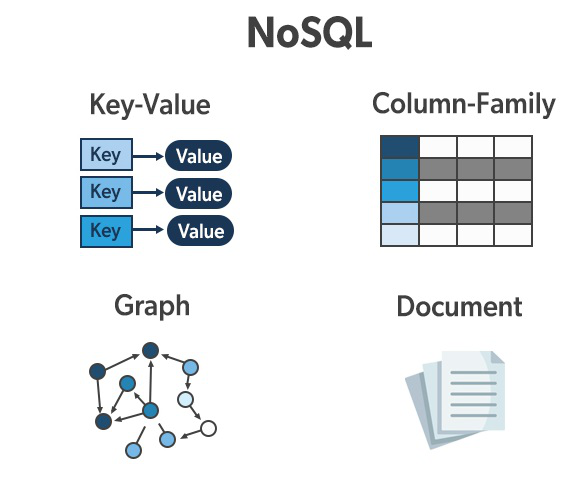
NoSQL Databases: Unleashing Flexibility and Scalability
In the realm of modern data management, traditional relational databases have been joined by a new player: NoSQL databases. In this blog post, we'll delve into the world of NoSQL, exploring its core concepts, advantages, and diverse use cases. By the end, you'll have a comprehensive understanding of how NoSQL databases are reshaping the way we handle and leverage data.
Breaking Free from Relational Constraints
NoSQL, which stands for "not only SQL," offers a departure from the rigid structure of traditional relational databases. Unlike relational databases, which rely on fixed schemas, NoSQL databases embrace a flexible and dynamic approach to data storage. This adaptability is particularly beneficial when dealing with large volumes of unstructured or semi-structured data.
Embracing Variety: NoSQL Database Types
NoSQL databases come in various flavors, each optimized for specific use cases:
- Document Stores: These databases, like MongoDB and Couchbase, store data in flexible JSON-like documents, allowing for easy handling of dynamic and nested data structures.
- Key-Value Stores: Examples include Redis and Amazon DynamoDB. They excel at simple data storage and retrieval using key-value pairs.
- Column-Family Stores: Cassandra and HBase belong to this category. They organize data in column families, ideal for applications requiring massive scalability.
- Graph Databases: Neo4j and Amazon Neptune focus on relationships between data entities, making them perfect for applications like social networks and recommendation systems.
Scalability and Performance
NoSQL databases shine when it comes to scalability. Many NoSQL databases are designed to be distributed and can seamlessly handle massive amounts of data and high traffic loads. This makes them ideal for applications requiring rapid growth and responsiveness.
Real-World Applications
NoSQL databases have made a significant impact across industries:
- Web Applications: NoSQL databases enable the rapid development of web applications that handle diverse data types and user interactions.
- Big Data and Analytics: NoSQL databases are crucial for storing and processing large datasets used in analytics and machine learning.
- Internet of Things (IoT): The flexibility of NoSQL databases suits the variable and unstructured data generated by IoT devices.
NoSQL Challenges and Considerations
While NoSQL databases offer numerous benefits, they're not without challenges. Managing data consistency in distributed environments can be complex, and NoSQL databases often lack the transaction support offered by traditional relational databases. Choosing the right type of NoSQL database for your application requires careful consideration of your specific use case and requirements.
The Future of Data Management
As data continues to grow in volume and complexity, NoSQL databases provide a dynamic solution. Their ability to handle diverse data types, provide high scalability, and adapt to evolving applications makes them a valuable addition to the modern data management toolbox.
Conclusion
NoSQL databases are transforming the data management landscape. With their flexibility, scalability, and ability to handle diverse data types, they're well-suited for modern applications dealing with massive amounts of information. Whether you're building web applications, analyzing big data, or diving into the IoT realm, NoSQL databases offer a versatile solution to meet your data storage and retrieval needs.
Chung Nguyen
